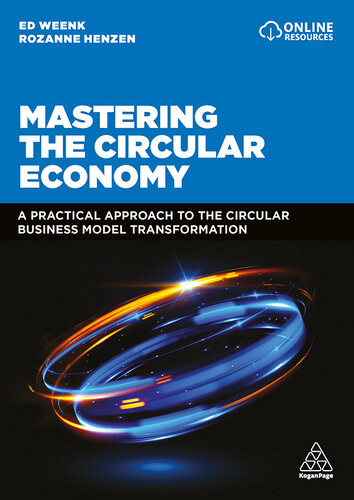

Most ebook files are in PDF format, so you can easily read them using various software such as Foxit Reader or directly on the Google Chrome browser.
Some ebook files are released by publishers in other formats such as .awz, .mobi, .epub, .fb2, etc. You may need to install specific software to read these formats on mobile/PC, such as Calibre.
Please read the tutorial at this link: https://ebookbell.com/faq
We offer FREE conversion to the popular formats you request; however, this may take some time. Therefore, right after payment, please email us, and we will try to provide the service as quickly as possible.
For some exceptional file formats or broken links (if any), please refrain from opening any disputes. Instead, email us first, and we will try to assist within a maximum of 6 hours.
EbookBell Team

4.4
72 reviewsGlobal consumption of raw materials currently goes beyond the earth's regenerative capacity, but the circular economy offers a more sustainable model which also provides new business opportunities.
Mastering the Circular Economy is an introduction to circularity from a business and value chain management perspective. With many reflections and exercises throughout, the book draws a direct link between relevant recent theory and practice and offers students and practitioners a deeper understanding of the topic. It looks at both the macro and micro context of the circular economy, from the government and societal view to the impact of new business models in an individual company.
Starting from the corporate imperative of moving from linear to circular business models, Mastering the Circular Economy covers the associated opportunities and challenges for organizations, from regulation and risk to value chain collaboration, reverse logistics and product quality. Part two of the book helps students to pull together everything they've learned and see how the concepts play out in the real world by guiding them through application in the online business simulation game The Blue Connection (free basic access is included with the book). Readers are continuously asked to reflect on the choices they would make in different roles to demonstrate a full understanding of the strategic and operational implications of the circular economy.